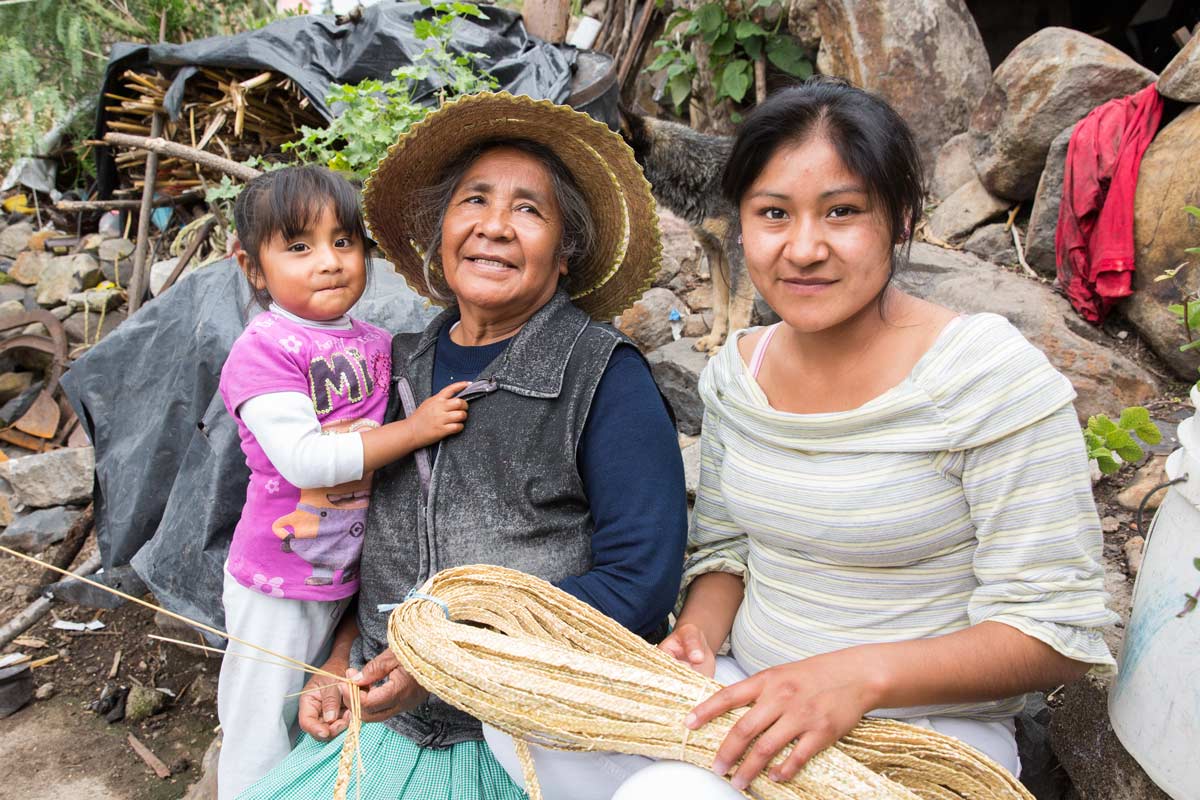by Shannon King, PhD, Vitamin Angels Implementation Science Manager
At Vitamin Angels, our goal is to promote health equity across the lifespan, and we do so by reaching pregnant women and children with essential nutrients during the critical development window — the first 2,000 days from pregnancy through age 5.
International Women’s Day marks a call to action. When expecting mothers and young children get the nutrition they need, it sets off a ripple effect of health and well-being that impacts entire communities across generations, helping create a more equitable world and future for all.
Women are the cornerstone of healthy communities, yet women are some of the most severely impacted by health inequities that lead to malnutrition. Discrimination, cultural bias, and stereotypes disproportionately impact women, and when food and resources are sparse, women are often the first to go without. The potential impact is even greater during pregnancy when women have increased nutritional demands to support the growth and development of their babies. The daily required intake of several key vitamins and minerals can increase by as much as 50% during pregnancy and often cannot be met through diet alone.1
During pregnancy, poor nutrition that results from health inequities can lead to adverse health outcomes for both mother and child. Undernourished women are more likely to develop serious complications during pregnancy and birth. For example, anemia affects 36% of pregnant women globally and is associated with an increased risk of death due to postpartum hemorrhage, the leading cause of maternal death.2,3 Additionally, children of undernourished women are more likely to experience physical and cognitive setbacks that can set them up for a lifetime of inequity. The impacts of malnutrition persist over a lifetime and across generations.
Addressing malnutrition in pregnant women and young children, therefore, helps to break the intergenerational cycle of malnourishment and is one of the most impactful places to address health inequity. Vitamin Angels’ work spans the first 2,000 days of a child’s life, from pregnancy through age five, and we offer an evidence-based package of nutrition solutions that make a significant impact on the health of mothers and children during this critical life stage:
During pregnancy, Vitamin Angels promotes diet quality and provides access to multiple micronutrient supplements (MMS)—also known as prenatal vitamins and minerals. When pregnant women have access to healthy food and proven nutrition interventions like MMS, their children and families do better.
- •Scaling the use of MMS up to 90% coverage is projected to result in 5 million additional school years, leading to an estimated annual increase of approximately $18 billion in lifetime income.4
- •Compared to iron and folic acid supplementation alone, MMS can (5,6,7):
- •Reduce the number of infants born with low birth weight (LBW) by 12%
- •Reduce preterm births by 4 to 8%
- •Reduce the number of small for gestational age (SGA) newborn infants by 3 to 8%
- •Reduce the number of stillbirths by 5%
- •Reduce the overall 6-month infant mortality by 7%
Following birth, Vitamin Angels implements behavior change strategies to support early initiation of breastfeeding, exclusive breastfeeding for the first six months, and feeding nutrient-rich complementary foods, along with continued breastfeeding from 6-23 months of age. Breastfeeding is one of the best ways to promote the health, wellbeing, and survival of mothers and their infants.
- •Breast milk is the ideal food for infants, providing the nutrients infants need as well as antibodies that protect against common childhood illnesses.
- •The addition of age-appropriate complementary food starting at 6 months, along with continued breastfeeding up to age two, promotes healthy development and growth.
- In early childhood, Vitamin Angels provides access to vitamin A Supplementation (VAS) and deworming. Vitamin A deficiency is a leading cause of preventable childhood blindness and a major contributor to illness and death. Providing two doses of vitamin A supplements a year is a proven way to:
- •Prevent childhood blindness
- •Promote physical growth
- •Help mitigate the incidence of measles, which can reduce under-5 mortality by up to 24%
Plus, adding Albendazole, an anti-parasitic, helps ensure a child can absorb and ingest nutrients and reach optimal health and nutrition.
It is with the help of over 1,200 program partners in about 65 countries that Vitamin Angels can deliver effective nutrition solutions to the most underserved populations at the most impactful time.
References
Gernand AD, Schulze KJ, Stewart CP, West KP Jr, Christian P. Micronutrient deficiencies in pregnancy worldwide: health effects and prevention. Nat Rev Endocrinol. 2016;12(5):274-289
- 1. The World Health Organization, 2021, Global anaemia estimates
- 2. The Lancet, 2013 series: Maternal and child nutrition.
- 3. Perumal N, et al. 2021. Impact of scaling up prenatal nutrition interventions on human capital outcomes in low- and middle-income countries:a modeling analysis. Am J Clin Nutr. 2021 Nov 8;114(5):1708-1718.
- 4. Haider BA, Bhutta ZA. Multiple‐micronutrient supplementation for women during pregnancy. Cochrane Database of Systematic Reviews. 2017(4).
- 5. Smith ER, Shankar AH, Wu LS, Aboud S, Adu-Afarwuah S, Ali H, Agustina R, Arifeen S, Ashorn P, Bhutta ZA, Christian P. Modifiers of the effect of maternal multiple micronutrient supplementation on stillbirth, birth outcomes, and infant mortality: a meta-analysis of individual patient data from 17 randomised trials in low-income and middle-income countries. The Lancet Global Health. 2017 Nov 1;5(11):e1090-100.
- 6. Keats EC, Haider BA, Tam E, Bhutta ZA. Multiple-micronutrient supplementation for women during pregnancy. Cochrane Database of Systematic Reviews 2019, Issue 3. Art. No.: CD004905. DOI: 10.1002/14651858.CD004905.pub6.
- 7. WHO. Guideline: Vitamin A supplementation in infants and children 6–59 months of age. Geneva, World Health Organization, 2011.

